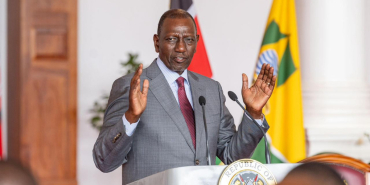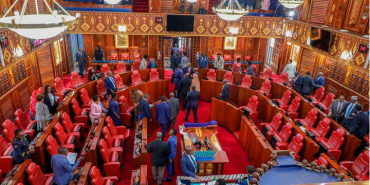DCI Granted Sh100 Million for DCI Internet and SIM Card Surveillance

The Kenyan government's proposed enhancements to internet surveillance are generating significant controversy, raising alarms about potential infringements on privacy and freedom of speech.
The catalyst for this debate is the allocation of Sh100 million in the 2025/26 budget for the Directorate of Criminal Investigations (DCI) to acquire Optimus 3.0, a sophisticated spyware system designed for extensive monitoring of digital communications. Optimus 3.0 enables authorities to infiltrate devices, gather personal data, and potentially decrypt encrypted messages without the explicit consent of users. Legal experts contend that this practice contravenes the Data Protection Act, which is intended to safeguard citizens' privacy rights.
This budgetary allocation coincides with the ongoing debate surrounding the Kenya Information and Communication (Amendment) Bill, 2025, introduced by Aldai MP Marianne Kitany. The bill seeks to grant the Cabinet Secretary for Information broad oversight of Internet Service Providers (ISPs), telecommunications companies, and cyber-related businesses.
Critics argue the bill represents an attempt to curtail free speech, citing its potential to facilitate unchecked government access to private information. Former National Assembly Speaker Justin Muturi suggests the government may already be engaged in covert surveillance activities. He views the bill as an effort to legitimize these practices, characterizing it as an infringement on fundamental freedoms.
Opponents draw parallels between the proposed measures and authoritarian tactics of the past, warning that the bill could allow the government to exert undue control over private communications. Muturi voices concerns that President William Ruto's administration is seeking to reverse democratic advancements, asserting that the amendments are incompatible with Kenya's constitutional framework.
The proposed legislation would require ISPs and SIM-card vendors to implement tracking mechanisms, including facial recognition technology, to streamline authorities' access to consumer data. This has ignited concerns about the appropriate balance between national security interests and individual rights. In addition to surveillance, the budget allocates Sh300 million to the Media Council of Kenya (MCK) to support media regulation, content oversight, and digital media hub operations.
Observers suggest this could extend government influence over news organizations, particularly given historical opposition to state interference in broadcasting. Clause 3 of the bill proposes amending Section 27A of KICA to mandate metered billing systems for ISPs, assigning each subscriber a unique tracking number.














Add new comment